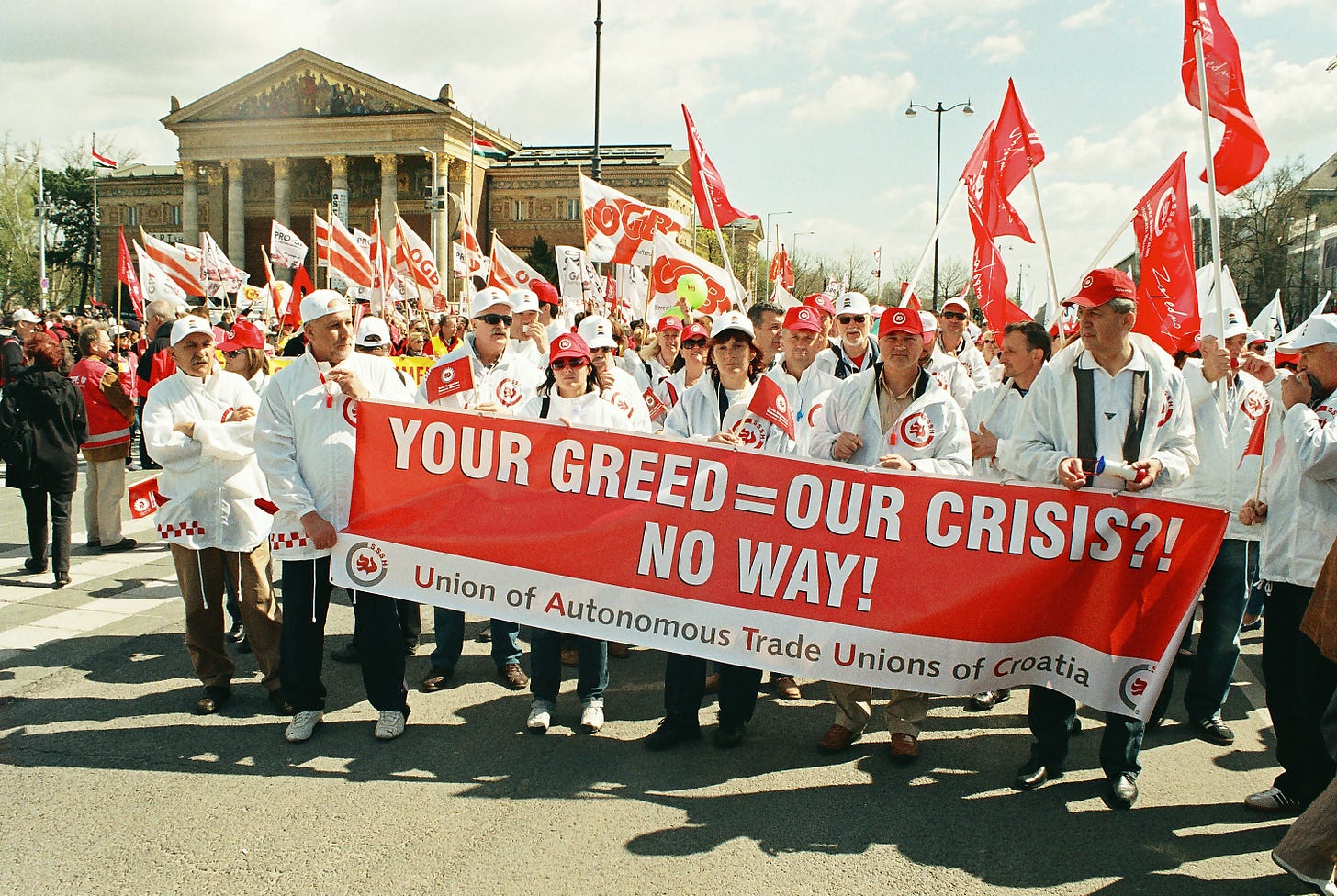How trade unions are taking on billionaires
This month, Equals is putting a spotlight on how trade unions are fighting inequality around the world.
In the first episode of the new season of the Equals Podcast, Luc Triangle, General Secretary of the International Trade Union Confederation, speaks to us about how a global movement of workers is standing up against what they call the ‘billionaire coup’. In the next episode, we’ll hear from 3 trade unionists about their struggle for workers’ rights in the face of spiralling inequality.
In this week’s Bulletin, we’re looking at how unions are fighting inequality and why the largest social movement in the world gives us hope.

Trade Unions against inequality, in numbers
Stronger trade unions = lower inequality. The decline in trade union membership over the last half-century has been mirrored by a steady rise in inequality, as worker bargaining power reduces compared to shareholders. Research of European countries by the ILO found that when trade union density reaches 39%, it is followed by a decline in income inequality as union density continues to increase. Conversely, an IMF study found that the decline in unionisation explains half of the rise in the Gini measure of income inequality.
Fighting to protect democracy. The latest ITUC Global Rights Index shows a huge decline for workers and unions in 2025, with Europe and the Americas recording their worst scores ever. Attacks on free speech were recorded in 45% of countries, and the right to strike was violated in 87% of countries. Populist and far-right movements are attacking democratic rights, the freedom of the press and introducing policies that benefit the rich. Unions are fighting back.
Politically rich vs politically poor. Being financially wealthy can make someone very politically rich. Being poor can make them politically poor. For example, in the US, when a policy has the support of the rich, it has a 45% chance of becoming law. When the rich oppose it, there’s just an 18% chance of it passing. In Spain, policies popular among “top socioeconomic groups” have nearly a 57% chance of being approved, while those popular among bottom groups have just a 41% chance. Unions are a vital way for ordinary people to fight back against political poverty.
Oligarchs, moving from the shadows to centre stage. Billionaire meddling in politics has traditionally been done in the shadows, funding shady think-tanks, donations to politicians and controlling the media through ownership. During the 2024 US elections, billionaire families donated almost $2 billion to the candidates. This year, billionaires took to the stage, quite literally. What’s especially worrying is that in democracies, politicians can be voted out, but billionaires can’t be.
Resisting the billionaire coup. The ITUC’s excellent campaign ‘Stop the Billionaire Coup!’ is mobilising their 200 million members to resist the takeover of democracy by the super-rich. It recognises that mainstream politics, with an agenda of deregulation, neoliberalism and privatisation, has left many people disillusioned and looking for alternatives, a space being filled by billionaire-backed far-right movements.
As the largest social movement in the world, trade unions are fighting inequality, not just through negotiating better pay and conditions for workers, but by offering a positive alternative where economies and governments serve the people, not the rich and their corporations. Now that’s something we can get behind!
Something to read/listen to
Read about the new G20 inequality taskforce, set up by South Africa and chaired by Economics Prize laureate Joseph Stiglitz.
Read about how Mexico has more than doubled its minimum wage without the feared job losses or price increases.
Watch millionaires campaigning for lower taxes for the working class, paid for by millionaires.
Read about how investors have drained the global south in pursuit of aggressive profit maximisation.
Read the newsletter from our friends at Inequality.org about why the Labor Day Weekend in the US was very different this year.



This is why oligarchs will always go after unions. Unions advance freedom, democracy and equality in their social contexts.